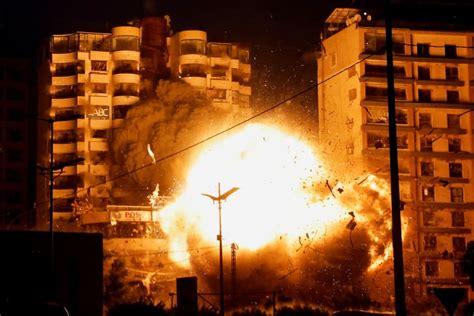
Israel set to accept Lebanon ceasefire to be declared on Tuesday, despite protests from northern mayors
Israel is set to agree to a ceasefire with Hezbollah in Lebanon, with the cabinet planning to meet on Tuesday to formally approve the agreement despite the protests of northern leaders and several coalition members, according to several reports by Israeli media.
Meanwhile, the IDF has raised its alert level in several areas of northern Israel, anticipating that the terror group may launch a barrage of rockets just before the ceasefire takes effect, aiming to frame the act as a declaration of victory.
The Saudi Asharq Al-Awsat news outlet reported that U.S. President Joe Biden and French President Emmanuel Macron may announce the agreement tomorrow morning.
However, Israeli Prime Minister Benjamin Netanyahu is scheduled to meet with senior ministers and close affiliates on Tuesday morning to discuss the agreement, ahead of a cabinet meeting later in the day that is expected to grant formal approval.
An Israeli official told The Times of Israel (TOI) that Netanyahu gave the green light after reviewing the final draft of the agreement, which will include a side letter with the United States to guarantee Israeli freedom of action to enforce violations militarily.
“It’s a Mabam [war between the wars] in Lebanon,” the official said. “We don’t know how long [the ceasefire] will last. It could be a month, it could be a year.”
Israel and Lebanon will reportedly coordinate their moves through the office of US CENTCOM’s General Michael Kurilla, who visited Israel numerous times during the war, including this week.
Despite Israeli objections, the international committee monitoring the ceasefire will include involvement from France. Israel reportedly agreed to its involvement after France assured it would not enforce the International Criminal Court (ICC) arrest warrants against Netanyahu, according to TOI.
The reports of an imminent agreement were met with opposition and frustration by several mayors and local leaders in northern Israel, who said they were not informed and remained dissatisfied with the security situation. They demanded the IDF continue degrading Hezbollah’s capabilities in the north.
Avichai Stern, mayor of border town Kiryat Shmona, slammed what he called the “surrender agreement.”
“I call on our leaders to stop and think about the children of Kiryat Shmona. Look them in the eye and don’t risk their fate to be the next hostages,” he said.
“Why don’t we finish what we started?! We succeeded in collapsing Hezbollah, and instead of continuing to crush the organization and pulverize it to the ground, we inject it with oxygen and give it CPR? And where will our residents return? To the ruined city without security and without a horizon?! Has everyone here gone crazy?”
Moshe Davidovich, head of the Mateh Asher Regional Council in the Western Galilee, told Ynet News: “I ask myself, am I living in a dream or am I hallucinating – or is whoever makes the decisions in the Israeli government hallucinating?”
“To create false representations for us, after people have been confined in shelters for more than a year, after children have been peeing in the bed for more than a year, after the mental health here has reached the end of its ability to suffer, is simply a mockery of the dead,” Davidovich added.
Kan News reported that residents and mayors in the north have yet to receive any details regarding the ceasefire terms.
“Netanyahu, present the agreement,” demanded Benny Gantz, chairman of the National Unity party. “It is the right of the residents of the north, the soldiers, and the citizens of Israel to know.”
On Monday evening, the IDF raised the alert levels along the border, as well as in the Golan Heights. This means that schools will remain closed, gatherings will be restricted to 10 people in open areas and 100 people in enclosed spaces. Workplaces may only operate if a safety shelter is accessible within the required timeframe in the event of a siren alert.
In Haifa and its suburbs, schools will only be permitted to open if students can reach the shelter within the designated time.
Among the first to criticize the incoming truce – but without threatening to leave the government – was National Security Minister Itamar Ben Gvir, who called it “a grave mistake” in a tweet on 𝕏.
“A historic missed opportunity to eradicate Hezbollah. I understand all the constraints and reasons, and it is still a grave mistake… Precisely now, when Hezbollah is beaten and longs for a cease-fire, it is forbidden to stop,” he wrote.
Despite the protests, the official cited by TOI stressed that the agreement would still be signed. “There are ministers who speak to their base, and we take it into consideration. But Ben Gvir understands the importance. It’s in Israel’s interest,” he said.
Source » allisrael.com





